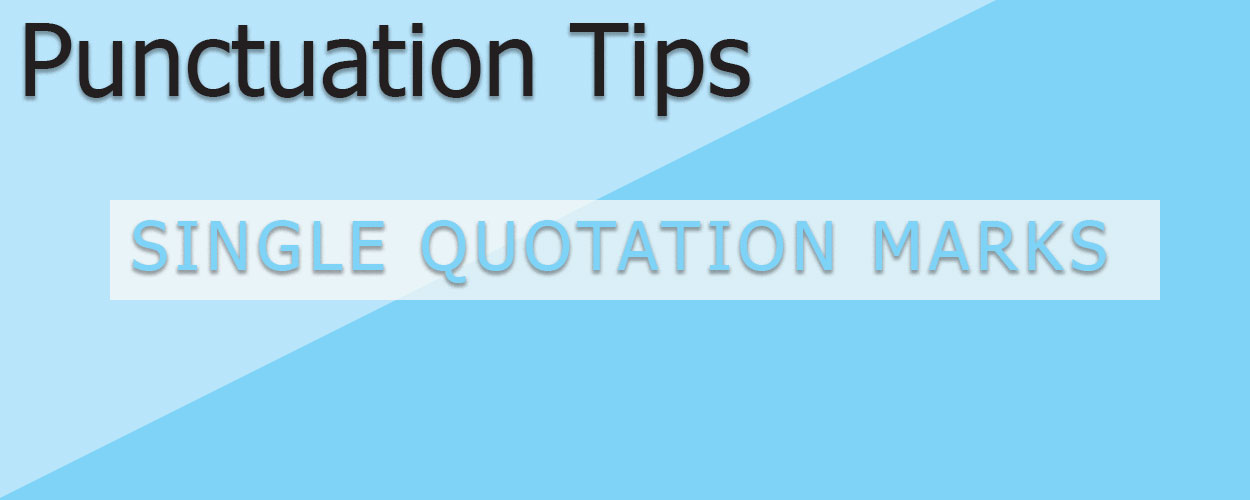

Posted: March 28, 2023
Definition: each of a set of punctuation marks, single (‘ ’) or double (“ ”), used either to mark the beginning and end of a title or quoted passage, or to indicate that a word or phrase is regarded as slang or jargon or is being discussed rather than used within the sentence.
In some countries, such as the UK, single quotation marks are used instead of double quotation marks.
When a quote is made within double-quoted dialogue, single quotes are used. When a quote is made within single-quoted dialogue, double quotes are used.
[Related Article: Punctuation: Double Quotation Marks]
Sometimes it’s difficult to distinguish between these two, especially since there is only one key on most keyboards for both. Also, most word processors (such as Office Word and Google Docs) automatically default to single quotation marks.
[Related Article: Punctuation: The Apostrophe]
Single quotation marks interact with other punctuation similarly to how double quotes do.
Generally, periods and commas go inside quotation marks.
Colons and semicolons always go outside quotation marks.
American and Canadian English styles use double quotation marks “ ” for dialogue.
UK English uses single quotation marks ‘ ’ for dialogue.
Russian, French, German, Italian, and numerous other languages use guillemets « » instead of quotation marks. (These are positioned either facing inwards or outwards, depending on the region.)
The Period
The Colon
The Question Mark
The Apostrophe
Double Quotation Marks
Parentheses
The Slash
Obscure Punctuation
The Comma
The Semicolon
The Exclamation Mark
The Ellipsis
Single Quotation Marks
Brackets
The Hyphen
Dashes
Aaron, J.E. & Morrison, A. The Little, Brown Compact Handbook, 5th Canadian ed. Pearson, 2013, chap 5
Judd, K. Copyediting, A Practical Guide, 3rd ed. California, CA: Crisp Learning, 2001, chap 4
Tigerpetal Press is a small book press dedicated to publishing local authors and poets.